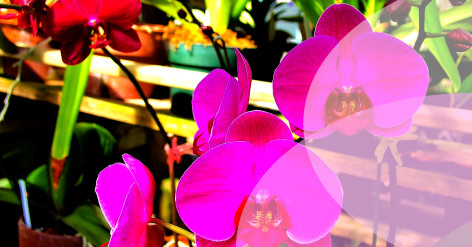How to Create a Garden That Attracts Beneficial Nematodes

Welcoming the Tiny Heroes: What Makes Beneficial Nematodes So Essential?
A garden that attracts beneficial nematodes can greatly improve your plants' health and create a beautiful natural ecosystem in your backyard. Nematodes are microscopic soil-dwelling organisms belonging to the phylum Nematoda, and while some of them can wreak havoc on plants, the beneficial ones help fend off harmful pests and boost overall soil health. In this article, we'll explore the many wonders of beneficial nematodes and share essential tips to transform your garden into a nematode-friendly haven.
Biological Pest Control Powerhouses
The Wonders of Soil Enrichment
Beneficial nematodes play a vital role in biological pest control. These microscopic allies hunt down and eliminate numerous garden pests like grubs, rootworms, and cutworms, which can harm your plants. A flourishing nematode population within your garden soil can help to keep these troublesome insects in check, reducing the need for potentially harmful chemical pesticides.
Laying the Foundations: Building a Garden to Attract Beneficial Nematodes

These tiny creatures also help improve your garden's soil structure by breaking down organic matter and releasing vital nutrients that your plants can absorb easily. A robust nematode population enhances soil fertility and promotes optimal growing conditions for your garden.
Now that we've established the importance of beneficial nematodes, let's delve into ways to create a garden environment that attracts these tiny soil superheroes.
1. Choose the Right Plants
2. Keep Your Garden Organic
Certain plants are known to attract beneficial nematodes, so incorporating them into your garden can help create a nematode-friendly environment. Some of the top nematode-attracting plants include:
- Marigolds (Tagetes spp.)
- African Violets (Saintpaulia spp.)
- Ginger (Zingiber officinale)
- Daylilies (Hemerocallis spp.)
By adding these plants to your garden, you'll create a more inviting environment for beneficial nematodes to thrive.
Related articles
3. Feed and Nurture Your Soil
Using chemical-heavy fertilizers and pesticides can have a negative impact on the soil's microorganism populations, including beneficial nematodes. Opting for organic gardening methods will not only support a healthy nematode community but also provide a safer environment for you, your family, and local wildlife.
4. Properly Water Your Garden
Well-nurtured soil encourages the growth and sustainability of beneficial nematodes. To create a healthy soil environment, consider these tips:
- Regularly add aged compost, aged manure, organic matter, or worm castings.
- Maintain mulch to help keep the soil temperature and moisture consistent, which the nematodes will appreciate.
- Solarize the soil during the hottest weeks of summer by covering it with a clear plastic tarp. Prolonged exposure to high temperatures can help reduce the population of harmful nematodes and other pests while sparing the beneficial ones.
Beyond the Basics: Additional Tips for Fostering Beneficial Nematodes
Consistent soil moisture is crucial for supporting a healthy nematode population. Make sure your garden is receiving the right amount of water by checking the soil moisture regularly and adjusting your watering habits accordingly. Overwatering or underwatering can discourage the growth of beneficial nematodes.
1. Rotate Your Crops
2. Release Purchased Nematodes
Crop rotation is a well-established practice for promoting overall garden health. By alternating the types of plants you grow in specific areas each year, you'll help prevent the buildup of harmful nematode populations and pests while maintaining soil fertility.
3. Collaborate with Neighboring Gardeners
You can also jump-start your garden's beneficial nematode population by purchasing them from reputable sources like Arbico Organics or Nature's Good Guys. Follow the provided instructions for releasing the nematodes into your garden and keep in mind that moisture is a crucial factor for their survival during the application process.
Encourage neighbors to adopt nematode-friendly gardening practices, too. The more gardens in close proximity that focus on nurturing beneficial nematodes, the easier it will be for the tiny heroes to maintain a strong local presence.
In conclusion, a garden that attracts beneficial nematodes is one that promotes long-term plant health by keeping destructive pests at bay and enhancing soil fertility. By incorporating nematode-friendly plants, maintaining a healthy and balanced garden soil, and employing organic gardening practices, you can create a beautiful, sustainable, and thriving outdoor space teeming with these microscopic allies. Begin your journey today and experience the rewards of a garden graciously shared by beneficial nematodes.





